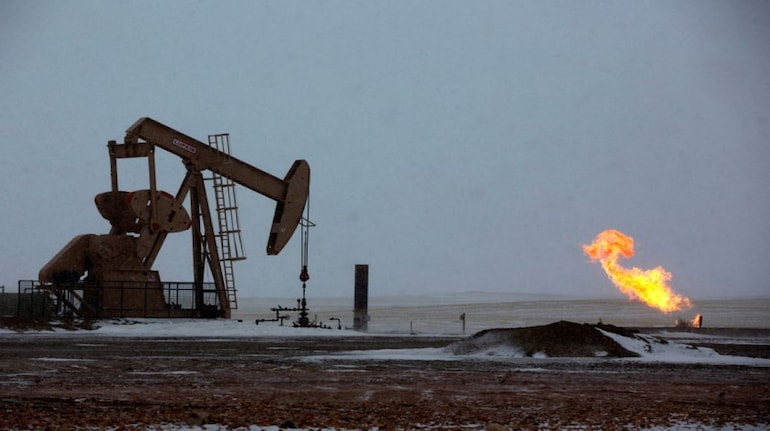



Crude oil prices simmered over $74 a barrel as the Middle-East boiled over Iran's ballistic missile attack on Israel on Tuesday night. Experts believe the price rally would tame down and subside eventually if the war does not spread widely in the region.
“The impact of war on oil prices has not been durable. I think the interest is more on the supply-demand balance. And the international energy agency is talking about a supply glut in 2025. Even if the OPEC does not restore their so-called production level, they are still on a curtailment and they were talking about tapering their production curtailment. But given the fact that oil prices are falling, they probably will not do it,” said Hitesh Jain, lead analyst at Yes Securities Limited.
“The point is that although geopolitical tensions are here and there, I see the focus on supply-demand. So you may see a knee-jerk response in terms of prices moving back up by $3-4. But eventually the focus will come on supply-demand,” he added.
In the recent months, oil prices have largely remained unaffected despite the raging conflict in the Middle-East. However, when Israel warned that it would respond to the barrage of 181 ballistic missiles launched by Iran at the country, oil prices shot off sharply.
Waning demand from several countries, primarily China, have weighed on the crude oil prices in recent months, offsetting the impact of heightened geopolitical tensions. The benchmark Brent crude has been hovering around $70 a barrel for over a month now and slid to $69 on September 10, the lowest in three years.
“It (jump in crude prices) looks more like a knee-jerk (reaction) and only as it unfolds, we will get to know if it will be really sustained or anything. Obviously, this increases the geopolitical risk premium because people are thinking, if it can snowball into something bigger involving a larger area. If Iran is impacted, then it can say that it won't let anything pass through the Strait of Hormuz. It can launch missile strikes on ships carrying crude, which would be a problem. But otherwise, as of now, it is probably more like an increase of the geopolitical risk premium because Iran is directly getting into something,” said Prashant Vasisht, vice-president and co-head of corporate ratings at ICRA.
Global oil prices have been highly volatile this year, breaching $90 per barrel in April due to geopolitical crisis in the Middle East, before plummeting to around $70-72 a barrel due to demand concerns from China.
The first half of the year saw relatively high prices on account of supply cuts from OPEC and its allies (OPEC+) and Middle East tensions. However, the prices soon began falling due to limited impact of war on the crude oil market.
Discover the latest Business News, Sensex, and Nifty updates. Obtain Personal Finance insights, tax queries, and expert opinions on Moneycontrol or download the Moneycontrol App to stay updated!